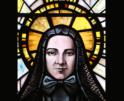
Culture

In the fall of 1921, he embarked on a nearly two-month, 3,000 mile tour of the U.S., during which he was greeted with a hero's welcome in city after city. He reached Boston on Nov. 14, 1921.
On Nov. 14, 1921 -- 100 years ago next Sunday -- Cardinal William Henry O'Connell received at his residence the esteemed French General Ferdinand Foch, who had served as supreme Allied commander during the First World War.
Ferdinand Foch was born in Tarbes, France, on Oct. 2, 1851, to a devout Catholic family. He attended the Jesuit colleges Saint-Michel in Saint-Etienne and Saint-Clement in Metz before enlisting in the French Army during the Franco-Prussian war of 1870. Although he never saw combat in that war, it inspired in him a deep interest in French military history and strategy. His knowledge would prove indispensable to the Allies during the First World War.
When war broke out in August 1914, Foch was in command of the XX Corps, part of France's Second Army. He gained renown for his leadership and determination during the First Battle of the Marne, during which his tactics successfully halted the German advance into France. Afterward, he quickly rose through the ranks of the Allied Forces, serving as assistant commander-in-chief of the Northern Zone, commander of the Army Group North, commander-in-chief of the Western Front and, finally, commander-in-chief of the Allied Armies.
Throughout the war, Foch received extensive coverage in the international press and was lionized as the principal architect of the Allied victory. For Catholics, Foch took on additional importance as a model Catholic layman, demonstrating that religious devotion was not in contradiction with devotion to country. "Forever does his untarnished reputation and loyal patriotism refute that idle calumny that a good Catholic cannot be a true patriot," the Boston College Stylus declared.
Some Catholic newspapers went further in their coverage of Foch, arguing that faith was the secret to his success. The Pilot, for example, reported that Foch "energized his men with the same spirit that inspired his great soul. They saw the visible manifestations of faith in his every act. They witnessed in his every order a forward step toward victory and knew that Foch's faith in God and in ultimate triumph through the aid of heaven would bring success to their cause."
After the war's end and the signing of the Treaty of Versailles, Foch continued to enjoy international acclaim. In the fall of 1921, he embarked on a nearly two-month, 3,000 mile tour of the U.S., during which he was greeted with a hero's welcome in city after city. He reached Boston on Nov. 14, 1921.
When Cardinal William O'Connell received word that Foch would be coming to Boston, he extended a personal invitation to the general. "I thought that perhaps by coming from Hartford to my residence in Boston Sunday after Mass and luncheon, you could have a quiet Sunday, dining very quietly and informally with me and then retiring for a good night's rest and thus ready for the program of Monday . . . If in this way I can be of some service to the great Marshal of France, whom Boston so much admires, it will be for me a great honor."
Foch replied that previous arrangements forced him to decline the cardinal's generous offer to host him for the evening. Still, he added a stop at the cardinal's residence to his very full schedule in Boston, which included a parade in his honor, the reception of honorary degrees from Boston College, Harvard, and Boston University, and the reception of the key to the City of Boston. He would visit the cardinal between his visit to Harvard and the state dinner in his honor at Copley Plaza.
Upon arriving at the cardinal's residence in Brookline, Foch was personally welcomed at the door by Cardinal O'Connell. Despite his long day, Foch greeted the cardinal graciously, saying "Your Eminence, I would not think of coming to Boston and not visiting you. I have been looking forward with great pleasure to this visit."
The cardinal ushered Foch into his library, where he was greeted by a hand-picked group of French priests, high-ranking Church leaders, and priests who had served as chaplains during World War I. These last Foch greeted warmly as "my comrades." Cardinal O'Connell presented Foch with a solid gold medal, which had been made at the time of his creation as Cardinal Archbishop of Boston. The cardinal and the general spoke about the rich connections between the archdiocese and France, recalling the contributions of Boston's first bishop, Jean-Louis Lefebvre de Cheverus and the pioneer missionary priest Father Francis Anthony Matignon.
After a short visit, Foch departed, expressing his regret that he could not stay longer. He told Cardinal O'Connell that he hoped to soon return to the United States, and on such an occasion to stay at the cardinal's residence. He was never to return. Cardinal O'Connell, city officials, veterans, and members of the French community who had taken part in the 1921 ceremonies in honor of Foch gathered again at the Cathedral of the Holy Cross in 1929, to mourn the general's death.
VIOLET HURST IS AN ARCHIVIST FOR THE ARCHDIOCESE OF BOSTON.
Recent articles in the Culture & Events section
-
Scripture Reflection for April 14, 2024, Third Sunday of EasterDeacon Greg Kandra
-
St. Helena's House is established in the South EndThomas Lester
-
Is this synodality?Russell Shaw
-
Poking the hornet's nest of IVFFather Tadeusz Pacholczyk
-
A eucharistic word: MissionMichael R. Heinlein


















